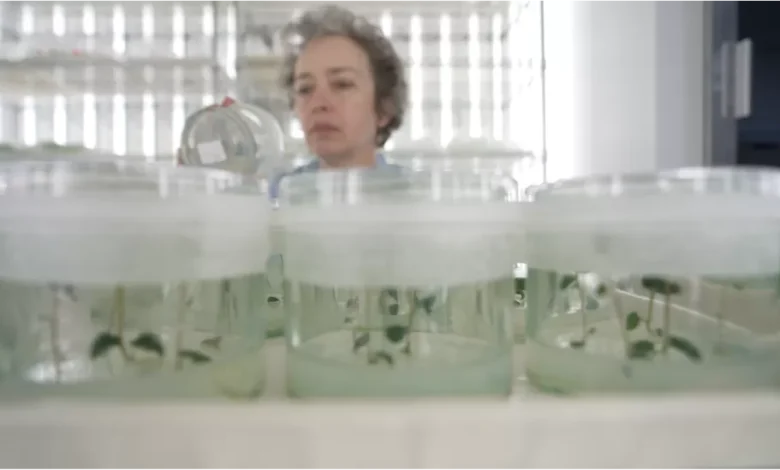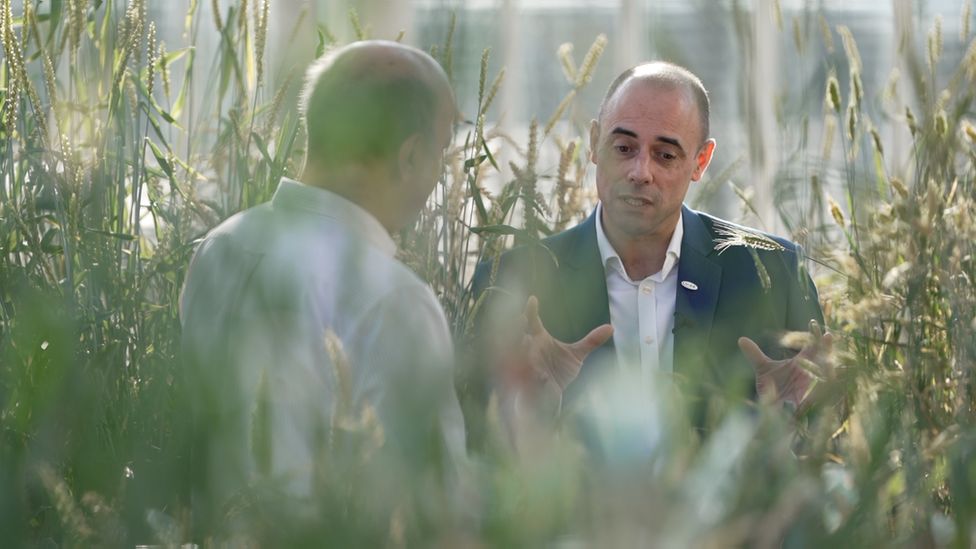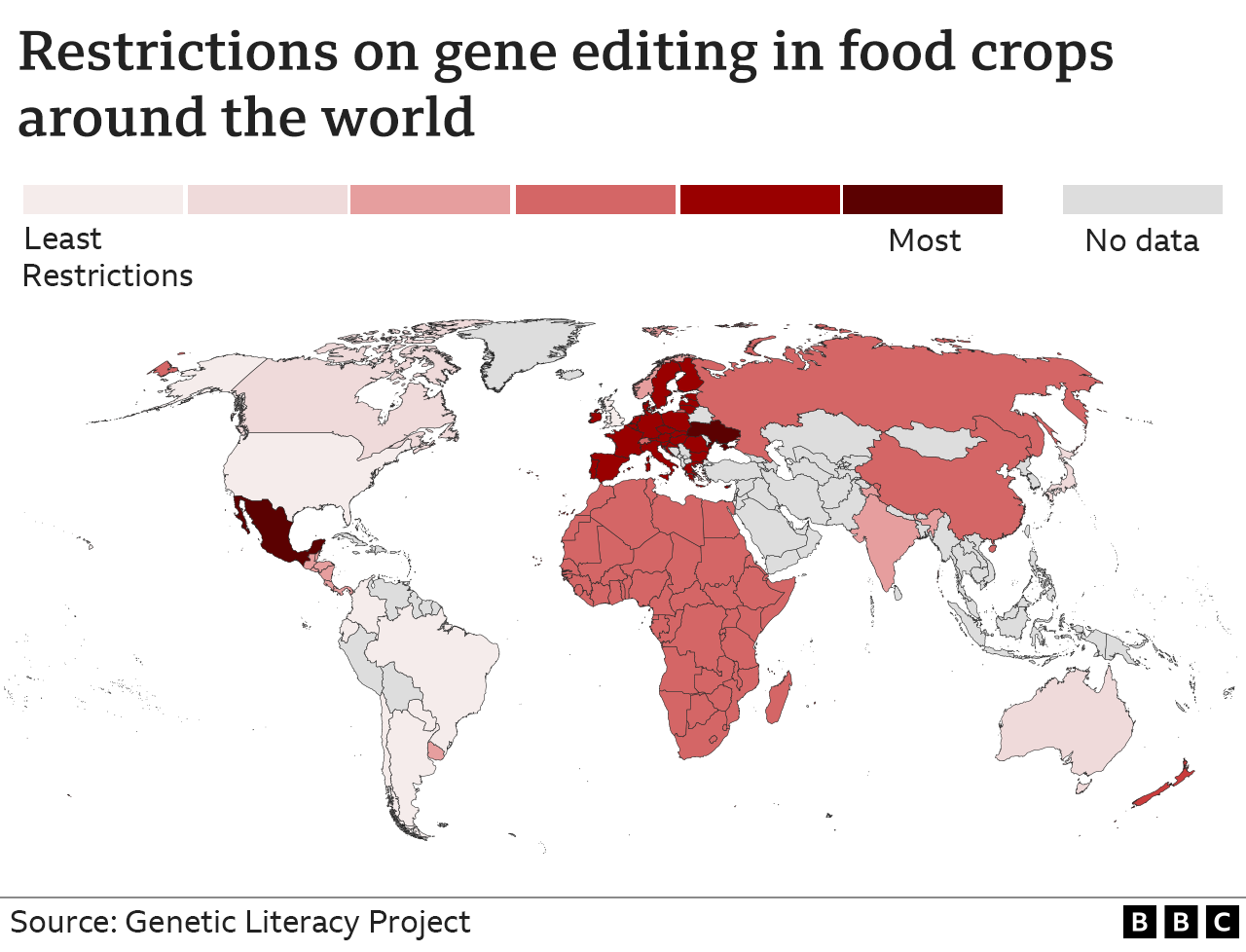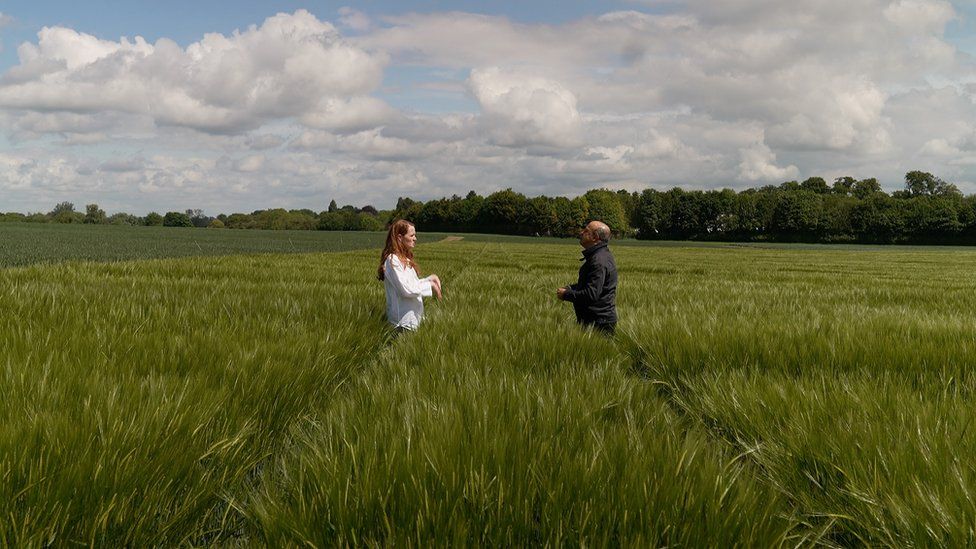Commercial development of gene-edited food now legal in England

Gene-edited food can now be developed commercially in England following a change in the law.
Supporters of the technology say it will speed up the development of hardier crops that will be needed because of climate change.
Critics say that the change could bring ”disaster” to our food production and the environment.
Gene editing involves making precise changes to an organism’s DNA to enhance certain characteristics.
The new law also opens the door to the development of gene-edited farm animals, but a further vote by MPs will be required before it is allowed, again only in England.
The Scottish, Welsh and Northern Irish governments have not permitted the commercial use of gene editing.

Gene editing in England had been covered under the same tight regulation that has restricted the commercial development of GM crops under EU law. Brexit has enabled the Westminster government to relax the rules for the newer technology.
The chief scientific advisor for the Department for Environment, Food and Rural Affairs (Defra), Prof Gideon Henderson, says that the new rules will lead to better food production and bring jobs and investment to England.
“What’s changed is that we can now use precision breeding technology developed in the lab and take it into the fields so that we can grow better crops and bring them to market more readily so that we can use the technology to enhance agricultural outcomes and food production in the UK and globally,” he said.
The Precision Breeding Act allows only genetic changes that could also have been produced naturally or through traditional crossbreeding programmes already in use today. GM can involve the introduction of genes from other species and will not be permitted.
Gene editing enables researchers to make precise genetic changes to a plant’s DNA, for example adding a gene to boost its growth or reduce dependence on fertiliser. The same change could be produced by crossbreeding different varieties, but it would take much longer.
The new law allows for the use of gene editing and other methods that may arise in the future, provided the end result is a crop that is no different to a variety that could have been naturally produced.

Critics of genetically altered food, such as Pat Thomas of Beyond GM, are concerned that gene-edited crops will not have to go through the extensive testing required of GM foods in the EU, which may result in the introduction of toxins and allergens into the food chain.
“The entire process of this bill has been of the government consulting scientists with vested interests, usually in the biotech industry, who are reassuring the government that this change in the law will have no consequences,” she said.
“History has shown that when you remove regulatory control, particularly for food and the environment, there is looming disaster on the horizon.”
Defra’s response is that the Food Standards Agency, the FSA will only authorise products for sale if they are judged to present no risk to health.
There is also concern that labelling of gene-edited food is not a requirement and it is unclear how GE food from England will be prevented from entering other parts of the UK, where it is still banned.

A Welsh Government spokesperson said that this would create “unavoidable consequences for Wales”.
“Gene-edited plants, animals and products from England will be marketable here without the authorisations our law requires,” they said.
“This undermines the devolution settlement. The UK Government chose not to engage with us, despite our efforts, whilst developing the bill and this means the effects of it have not been properly considered.”
The Scottish government has a long-standing opposition to GM and wishes to stay in step with the EU, though its stance is opposed by NFU Scotland who says it puts Scottish farmers at a competitive disadvantage.
The Northern Ireland government has to follow the protocol negotiated with the EU which requires that it remains in step with rules regarding the definition of GM crops in Europe, which also cover gene-edited crops.
There is however enthusiasm for the use of gene editing among some plant breeders in England.

The National Institute of Agricultural Botany, just outside Cambridge, has been breeding new varieties of crops for UK farmers for more than a hundred years.
They crossbreed different varieties to produce new ones that grow better and are more resistant to diseases. It can take ten to fifteen years of development. The head of the lab, Prof Mario Caccamo told BBC News that he wants to use the technology to develop new varieties that can grow well in the hotter, drier conditions that the UK is experiencing more regularly, because of climate change.
“When we look to how the population is growing and how much we are increasing our yields using traditional methods, we are lagging behind,” he said. “The projections show that we have to have an acceleration into how we can improve crops otherwise we are going to be struggling to feed the world.”

The UK is among the world leaders in research into plant genetics. But that expertise has not been able to take off, because of the effective ban on the commercial development of the technology, according to its supporters. The hope is that the change in law will attract new investment leading to new companies, new jobs and new foods.
Bayer Crop Science has developed GM crops for use across the world, employing more than 30,000 people.
But in the UK, it has a staff of 90 who are involved in traditional plant breeding. The company isn’t ready to announce any new investment plans in England yet – but the firm’s head of marketing in the UK, Lindy Blanchard, welcomed the change in the law.
“We are really, really excited and we are committed to help farmers overcome the challenges of climate change and we want to provide safe sustainable food for society, so no doubt we will be looking at this but it is step by step.”
The new act also has provision to allow gene-edited animals on English farms, like these disease resistant pigs, developed in Scotland. But that will require another vote by MPs in Westminster once the government is satisfied that animals won’t suffer.










